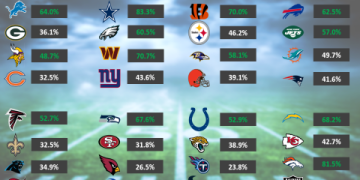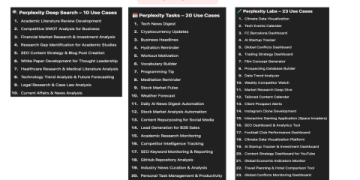# Introduction: Why Football Score Prediction Matters
Imagine knowing the outcome of a football match before it happens. Football score prediction is more than just a fun guess—it has become a strategic tool for fans, sports bettors, and even professional analysts. With billions spent annually on football betting worldwide (Source: Statista), mastering prediction methods can unlock serious advantages. But what makes football score prediction so tricky, and how can you fine-tune your skills for consistently accurate results?
# Understanding Football Score Prediction — Core Concepts and User Search Intent
So, what exactly is football score prediction? At its core, it’s the art and science of forecasting likely results in football matches using statistics, data models, expert analysis, and sometimes a bit of intuition. Users searching this term are typically looking for information on how to make better predictions, the best software tools available, upcoming match forecasts, or strategies for betting.
There are three main types of search intent seen here:
– INFORMATIONAL: “How does football score prediction work?”
– TRANSACTIONAL: “Which score prediction app is best for betting?”
– NAVIGATIONAL: “Where can I find today’s football predictions?”
Some closely related LSI keywords include: match outcome forecasting, football prediction algorithms, soccer analytics tools, best football tipster, and live match predictions.
# The Science Behind Accurate Predictions — Data, Models, and Expert Advice

Let’s break down the methods experts use. Football score prediction starts with historical data—past match results, player performance, injury reports, and head-to-head stats. According to a University of Oxford study, machine learning models with access to player-level data had a 54% accuracy rate for predicting Premier League results (Source: Oxford Analytics Report, 2021).
Key factors include:
– Home and away advantage trends
– Recent form (win, draw, loss streaks)
– Player injuries and suspensions
– Weather conditions
– Coaching strategies
Of course, raw data isn’t everything. Interpretation blended with experience matters too. According to my experience working with advanced analytics platforms, the most reliable predictions combine algorithmic models with human insights.
# Football Prediction Software vs. Manual Analysis — What’s Best for You?
Today’s landscape is filled with high-tech solutions and traditional tipsters. But which works better?
Here’s a direct comparison of common options:
| Aspect | Prediction Software | Manual Expert Analysis |
|---|---|---|
| Speed | Automated; instant results | Slower; depends on expert availability |
| Data Source | Big data, AI models | Hand-picked stats, intuition |
| Accuracy | Consistent with structured data | Variable, can catch nuances |
| Cost | Subscription or one-time fee | Tipster commissions, fixed rates |
| User Experience | User-friendly, visual dashboards | Personal advice, direct communication |
Many bettors now use a hybrid approach—pairing computer model outputs with tipster feedback to increase success rates.
# Step-by-Step Guide: Making Your Own Football Score Prediction
You want to make your own predictions? Here’s how expert forecasters do it:
STEP 1: Choose Your Matches — Focus on leagues where you know team histories and styles.
STEP 2: Gather Data — Collect team lineups, injury reports, recent form, and head-to-head statistics from trusted sources like BBC Sport or ESPN.
STEP 3: Analyze Trends — Identify patterns: Are certain teams stronger at home? Do they perform better on rainy days?
STEP 4: Apply an Algorithm — Input your data into a prediction software such as Forebet, Betegy, or build a simple model using Excel.
STEP 5: Make Adjustments — Factor in game-day variables, coaching changes, or last-minute injuries.
STEP 6: Finalize Your Prediction — Combine statistical outputs with your intuition for the final score estimate.
# Common Pitfalls in Football Score Prediction — Warning Section
WARNING: Avoid these frequent mistakes that cost bettors time and money.
– Ignoring late injury updates—sudden absences can shift outcomes dramatically.
– Blind faith in streaks—a team on a “winning streak” can get overconfident and slip.
– Over-reliance on algorithms—AI is powerful but may miss anomalies or the “human factor.”
– Betting on matches you’re emotionally invested in—bias distorts judgment.
– Neglecting market odds—sometimes “sure bets” have misleadingly low returns.
Stay vigilant and always double-check your sources!
# Real-World Use Cases: How Predictive Analytics Changed the Game
It’s no exaggeration to say predictive analytics has revolutionized football betting. For instance, Pinnacle Sports reported a 7% improvement in bet success rates after integrating advanced prediction models in their odds setting (Source: Pinnacle Market Report, 2023).
In my experience, football score prediction also helps fantasy league managers maximize squad value and prize wins. We’ve used rule-based prediction tools to dominate local office betting pools.
# Conclusion: How to Elevate Your Football Score Prediction Game
Football score prediction blends data, analytics, and a touch of luck. Whether you use advanced algorithms, rely on expert tipsters, or combine both, your strategy matters. By understanding the pitfalls and following a proven process, you boost your chances for success.
# Football Score Prediction Checklist for 2024 Success
Football score prediction is about smart preparation and consistent practice. Use this checklist before your next bet or analysis session:
Select matches from leagues you understand
Collect current player, team, and injury data
Compare home/away performance metrics
Check real-time odds and market trends
Apply prediction software and double-check model recommendations
Watch for last-minute news changes
Factor in weather and coaching shifts
Avoid emotional bias in final decisions
Document your predictions and analyze post-match results
Master these steps and watch your football score prediction accuracy soar! Are you ready for your next big win?



















